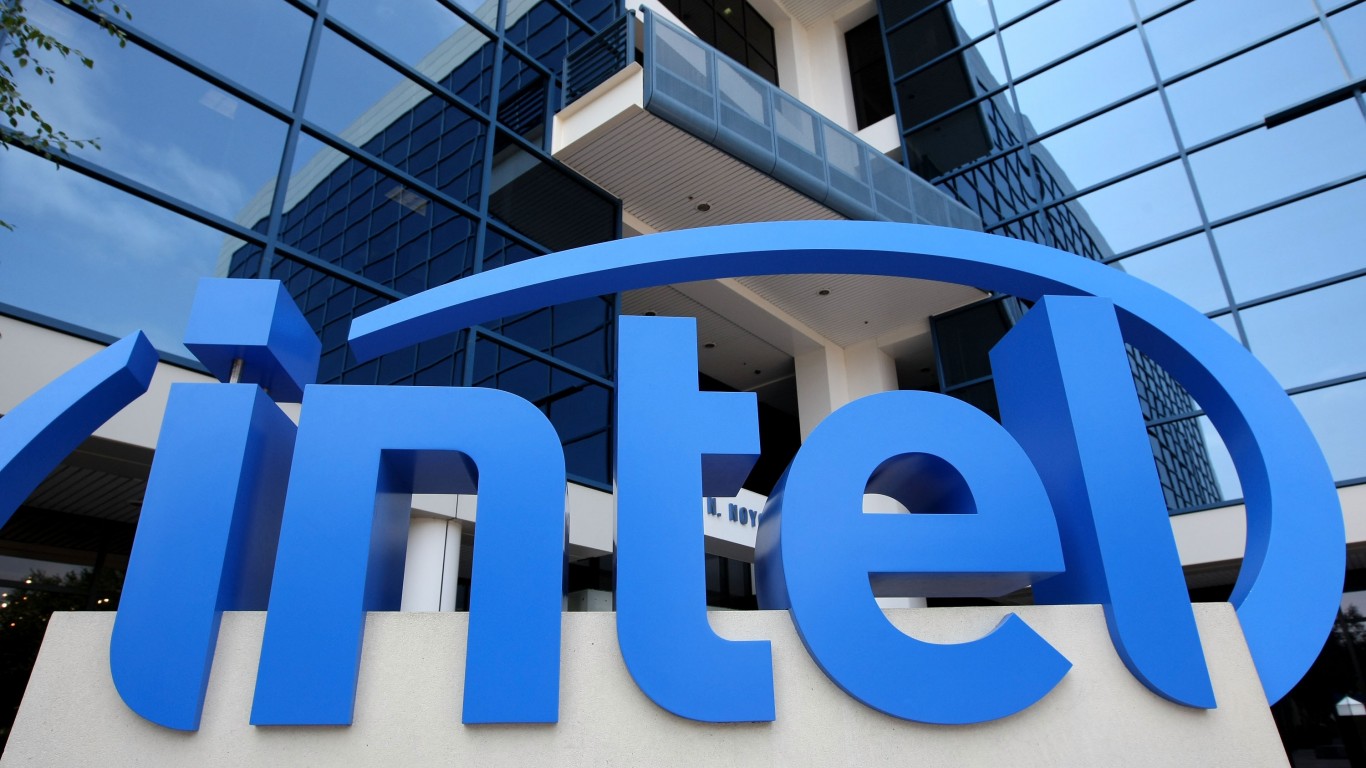
It takes a certain kind of courage to short sell blue chips, such as the Dow Jones industrial average components. Short sellers are betting on these companies to fail, or at least for their share prices to fall handily. Plus, those sellers are responsible for paying the dividends on the stocks they short.
Maybe it is little surprise that only two of the 30 Dow stocks had sizable short interest between August 31 and September 15; that is, more than 90 million shares short. A third of the index’s components had short interest of more than 20 million shares.
With the pandemic showing no signs that it will fade anytime soon, and a contentious election coming up, investors have been trying to figure out what to do next. They may wonder then what the short sellers have expected from some of the biggest, most well-respected names on Wall Street. It turns out that changes in short interest among the Dow stocks in the most recent period were mixed and mostly mild, as the markets retreated again from all-time highs.
As of the end of the month settlement date, the most recently reported period, short sellers still favored tech giants Intel Corp. (NASDAQ: INTC), Apple Inc. (NASDAQ: AAPL) and Microsoft Corp. (NASDAQ: MSFT) above all other Dow stocks. Note that both Exxon and Pfizer, previously the most shorted Dow stocks, are no longer included in the index.
Intel
> Shares short: around 138.01 million
> Change from prior period: −20.5%
> Percentage of float: 3.3
After the short interest more than tripled in the final weeks of August, some of that gain was taken back in the first half of this month. Note that the number of shares short was at a 52-week low as recently as mid-July. At the average daily trading volume at the end of the latest period, it would take short sellers about four days to cover their positions.
Rival Nvidia’s buyout of ARM could spell further trouble for already lagging Intel. Its shares ended the two weeks trading almost 2% lower. They had been up more than 2% earlier in the period, and they have retreated more recently. Note that the Nasdaq pulled back almost 5% between the most recent settlement dates.
Intel stock was last seen trading at $49.16 a share. While that is still up from the 52-week low of $43.63 from earlier this year, it is well off the $69.29 52-week high, also seen early this year. The latest share price is down almost 18% since the beginning of the year, while the Nasdaq has gained about 19% in that time.
Apple
> Shares short: around 90.22 million
> Change from prior period: 13.2%
> Percentage of float: 0.5
On a split-adjusted basis, short interest in the prior period was its lowest level since May. Yet, the number of Apple shares short rose again in the latest period, leading up to new product launches. At the average daily trading volume on the most recent settlement date, the days to cover figure was still less than one.
Some analysts saw more upside for Apple stock even though market cap pulled back from $2 trillion. Its share price ended the first half of September more than 10% lower than where it began, despite being up more than 4% early in the period. The S&P 500 retreated less than 3% during the short interest period.
Apple stock closed most recently at $108.22 per share, which is about 2% lower than a week ago. The split-adjusted 52-week low of $53.15 was seen back in March, and the 52-week high of $137.98 was reached early this month. The shares now trade more than 47% higher year to date and are up around 93% from the March low.
Microsoft
> Shares short: around 37.79 million
> Change from prior period: 3.7%
> Percentage of float: 0.5
The maker of Windows, Office and the Xbox clung to in the third spot on the most shorted Dow components list, though it is something of a distant third place, and short interest was at a 52-week low last month. At the average daily volume on the latest settlement date, it would take investors more than a day to cover their short interest.
Microsoft ultimately was not the winner in the race for TikTok during the period. Short sellers watched the share price climb more than 3% but then head south and end the period more than 7% lower. It pulled back a bit more afterward. Note that the Dow ended the latter half of last month down less than 2%.
After climbing more than 1% in the past week, Microsoft stock closed trading on Thursday at $203.19 a share. That was in a 52-week range of $232.86 (seen early this month) to $132.52 (in March). The most recent share price is more than 49% higher since the year-to-date low in March, compared to a gain of more than 55% for the Nasdaq in that time.
And the Rest
Rounding out the top five most shorted Dow stocks on the most recent settlement date were Cisco Systems Inc. (NASDAQ: CSCO) and Verizon Communications Inc. (NYSE: VZ). The share price of the former, considered a safer, dividend-paying tech stock pick, pulled back almost 4% in those two weeks. The latter, seen as a safe harbor stock, had a gain of more than 2% in that time. Yet, the short interest of both shrank somewhat during the period.
On the following list of short interest changes in the Dow stocks as of September 15, note that, like Apple, Chevron, Coca-Cola and 3M saw sizable increases in their short interest. The newest components of the Dow Jones industrial average, Amgen, Honeywell and Salesforce, also had rising short interest in their first two weeks in the index.
| Dow Stock | Short (millions) | Change | % Float |
|---|---|---|---|
| Intel | 138.01 | −20.47% | 3.25% |
| Apple | 90.22 | 13.22% | 0.52% |
| Microsoft | 37.79 | 3.66% | 0.51% |
| Cisco | 30.01 | −4.42% | 0.71% |
| Verizon | 29.86 | −0.67% | 0.72% |
| Visa | 27.72 | −2.23% | 1.65% |
| Coca-Cola | 23.53 | 19.88% | 0.55% |
| IBM | 22.13 | −2.20% | 2.49% |
| Chevron | 20.83 | 10.46% | 1.12% |
| JPMorgan | 20.41 | −8.42% | 0.68% |
| Disney | 19.98 | −11.00% | 1.11% |
| Walgreens | 18.99 | −0.27% | 2.64% |
| Walmart | 18.55 | 8.59% | 1.31% |
| Dow | 15.28 | 4.75% | 2.06% |
| Salesforce | 14.22 | 14.22% | n/a |
| Procter & Gamble | 14.03 | −2.82% | 0.56% |
| Nike | 11.03 | 6.55% | 0.92% |
| Merck | 10.97 | −9.43% | 0.43% |
| American Express | 10.57 | −4.63% | 1.31% |
| Johnson & Johnson | 10.29 | −2.54% | 0.39% |
| Boeing | 10.00 | 9.03% | 1.78% |
| 3M | 7.71 | 15.50% | 1.34% |
| Caterpillar | 7.34 | 4.97% | 1.36% |
| Amgen | 6.77 | 9.04% | 1.16% |
| Honeywell | 6.13 | 8.28% | 0.88% |
| Home Depot | 5.54 | −28.20% | 0.68% |
| McDonald’s | 5.49 | −20.30% | 0.74% |
| UnitedHealth | 5.19 | −6.87% | 0.55% |
| Travelers | 4.52 | −10.87% | 1.79% |
| Goldman Sachs | 4.01 | −16.85% | 1.21% |
It’s Your Money, Your Future—Own It (sponsor)
Are you ahead, or behind on retirement? For families with more than $500,000 saved for retirement, finding a financial advisor who puts your interest first can be the difference, and today it’s easier than ever. SmartAsset’s free tool matches you with up to three fiduciary financial advisors who serve your area in minutes. Each advisor has been carefully vetted and must act in your best interests. Start your search now.
If you’ve saved and built a substantial nest egg for you and your family, don’t delay; get started right here and help your retirement dreams become a retirement reality.
Thank you for reading! Have some feedback for us?
Contact the 24/7 Wall St. editorial team.

 24/7 Wall St.
24/7 Wall St.



